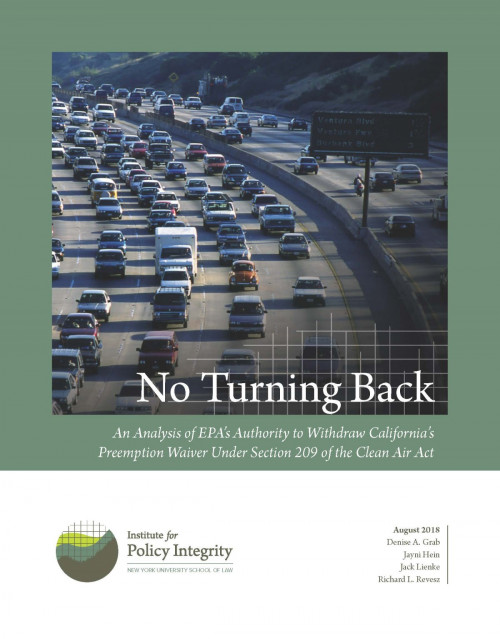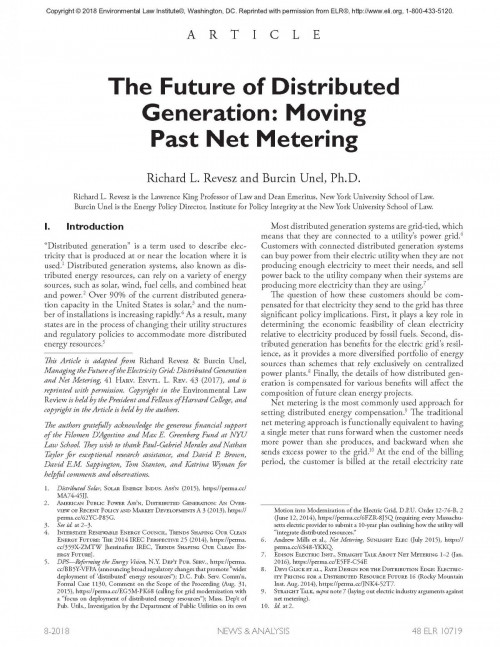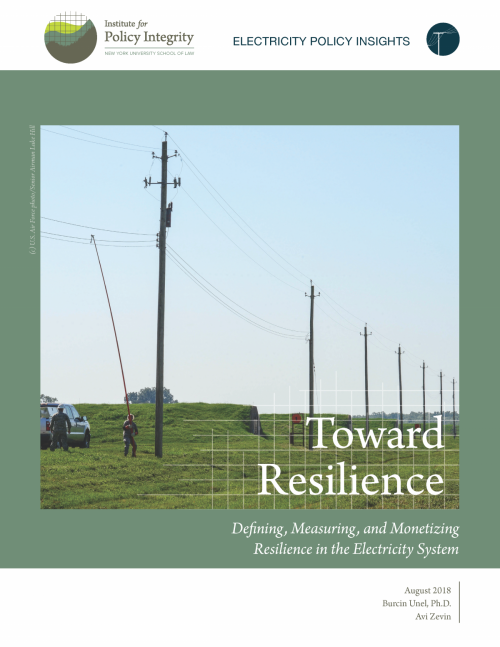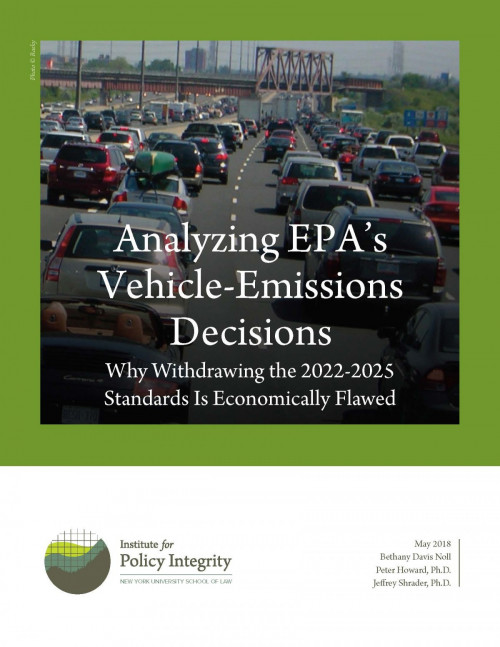The Institute for Policy Integrity produces a variety of publications. Our research reports develop in-depth research on our core issues, while our policy briefs and issue briefs provide focused analysis on more timely or particular topics. Our academic articles and working papers offer original scholarly research and analysis from established experts as well as fresh new voices.
Latest Publications
-

No Turning Back
An Analysis of EPA’s Authority to Withdraw California’s Preemption Waiver Under Section 209 of the Clean Air Act
For 50 years, California has enjoyed unique authority to regulate air pollution from newly manufactured motor vehicles. While the Clean Air Act preempts all other states from setting their own vehicle emission standards, California can request a waiver to do so if it determines that its standards are at least as protective of public health and welfare as federal standards issued by the U.S. Environmental Protection Agency (“EPA”). Once a waiver is granted, other states can adopt California’s more stringent vehicle emissions standards as their own. EPA has now proposed to withdraw the waiver California received in 2013 to set its own greenhouse gas emission standards. Because a waiver withdrawal would be entirely unprecedented, neither courts nor legal scholars have previously had cause to discuss the circumstances, if any, under which a waiver might permissibly be withdrawn. This report analyzes whether EPA possesses revocation authority and, assuming it exists at all, when and how such authority may be exercised. It is an update to the August 2018 version of the same report.
-

The Future of Distributed Generation
Moving Past Net Metering
This article provides an overview of the benefits and the costs of distributed generation and highlights the analytical flaws and missing elements in the competing positions and in most existing policies. We propose an alternative approach that recognizes the contributions to the electric grid of both utilities and distributed generators. The article is excerpted and revised from a longer academic article, “Managing the Future of the Electricity Grid: Distributed Generation and Net Metering,” which was selected by Environmental Law Reporter as one of the five best environmental law articles published in the 2017-2018 academic year.
-

Toward Resilience
Defining, Measuring, and Monetizing Resilience in the Electricity System
Grid resilience—generally, the electric grid’s ability to resist/absorb, manage, quickly respond, and recover from/adapt to high-impact, low-probability external shocks—has been a concern for electric utilities and energy planners for decades. While recent extreme weather and cyber security concerns have prompted the federal government to pursue policies that support coal and nuclear power plants, a more systematic focus on resilience will lead to very different solutions than what has been proposed by the Department of Energy. Our report aims to assist policymakers in understanding grid resilience and evaluating potential interventions aimed at improving grid resilience.
-

How States Can Value Pollution Reductions from Distributed Energy Resources
DERs are a growing part of the U.S. electric system and many state electric utility regulators are looking to more accurately compensate them by paying for a variety of the benefits that these resources provide. Most states are currently focusing on energy and distribution-level benefits, but this approach overlooks the environmental and public health impacts of DERs. Even though some states like California and New York have been working on analyses that include environmental attributes of DERs, few regulators have attempted a thorough evaluation of the environmental and public health benefits. Our report, Valuing Pollution Reduction, lays out a practical methodology for calculating the E value, the highlights of which are captured here. Specifically, this issue brief describes how to appropriately value environmental and public health benefits by monetizing the economic, health, and climate damages avoided emissions would have caused. State utility regulators can use the steps described here, weighing tradeoffs between accuracy and administrability, to implement their own program to holistically compensate DERs.
-

Analyzing EPA’s Vehicle-Emissions Decisions
Why Withdrawing the 2022-2025 Standards Is Economically Flawed
The Environmental Protection Agency sets greenhouse gas emissions standards for cars and light trucks, and it periodically reevaluates these standards to make sure that car manufacturers can comply. In April 2018, EPA withdrew its previous determination that standards for model year 2022–2025 vehicles were appropriate and would improve public welfare, now saying that more recent information suggests that the standards are too stringent. Our policy brief shows that EPA’s claim—that new information indicates that the assumptions underlying the previous determination are unrealistic—is not supported by the evidence. In fact, the opposite is the case. Recent trends in fuel prices, vehicle sales, automaker compliance, and safety all indicate that the existing 2022–2025 standards can be met at low cost while delivering large benefits to consumers and the economy. EPA’s decision to withdraw the standards will instead cause regulatory uncertainty that will hurt the automotive sector while also harming the environment.
